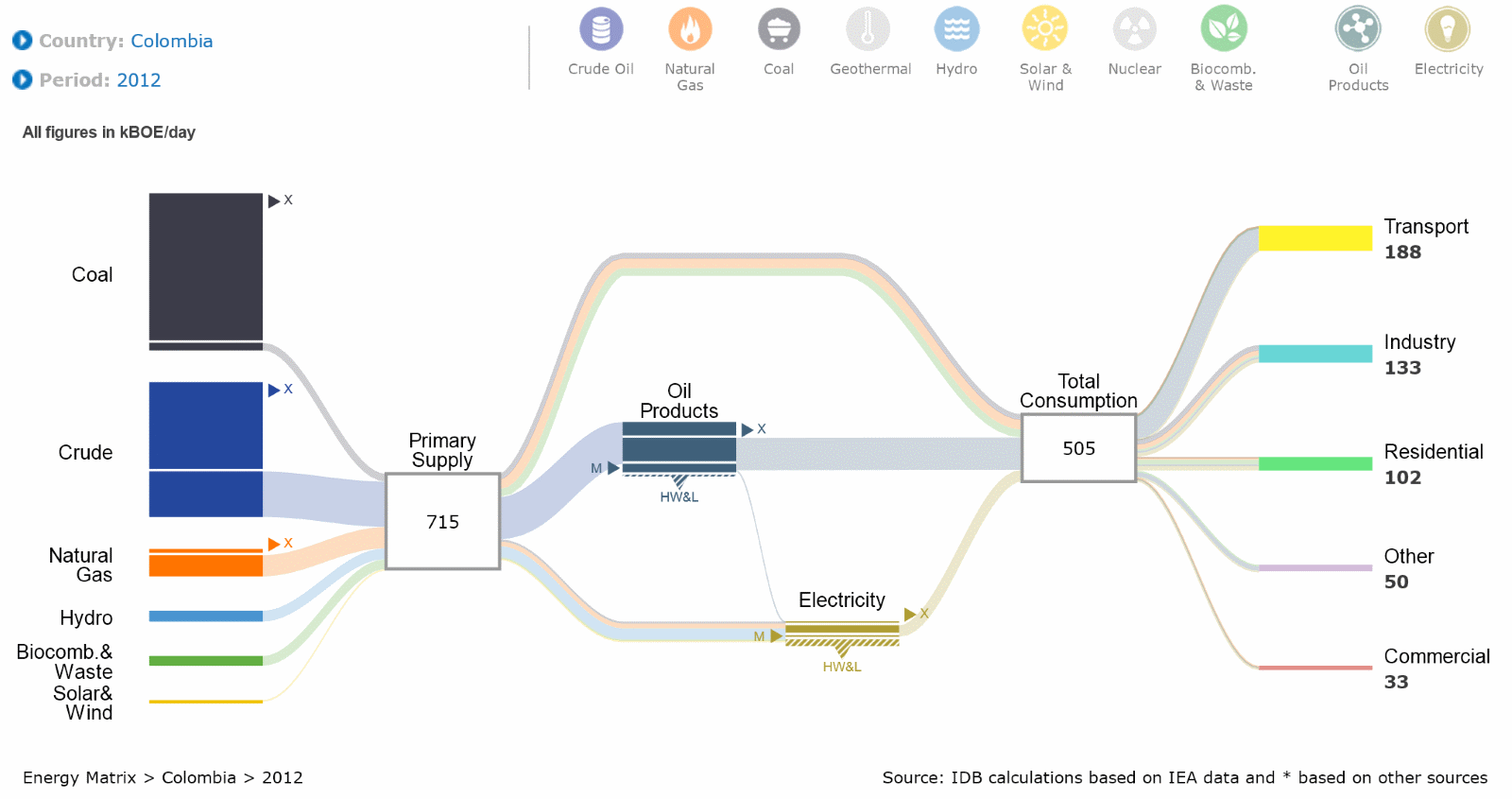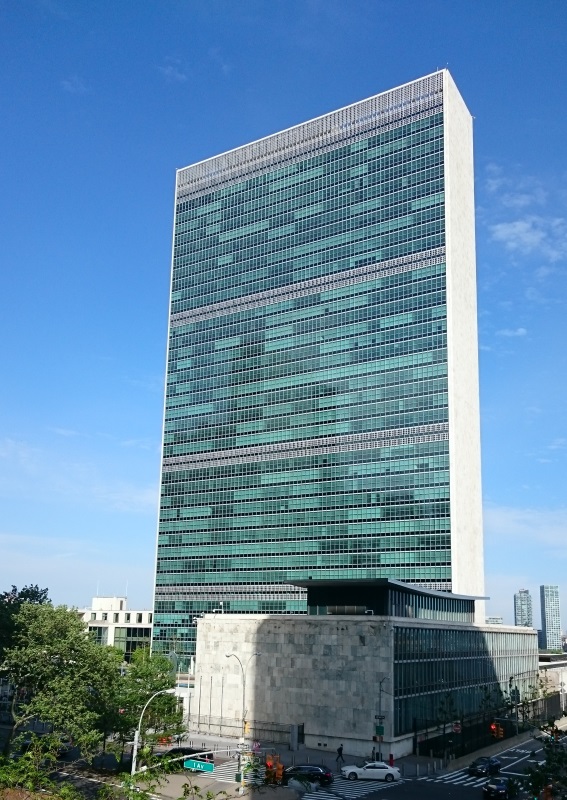Last month the United Nations convened the second Sustainable Energy for All (SE4All) Forum in New York City. It brought together government bodies, international organizations, NGOs, corporations, and citizen groups from around the world. Having attended all four days, I thought I would write a summary of some of the things that caught my attention.
The UN SE4All overarching goals are to achieve universal energy access by 2030, to double the share of renewable energy in the global energy mix by 2030, and to double the global rate of improvements in energy efficiency. To achieve this, many different actors are required, from government to corporations to civil society.
And in a timely fashion, this event is taking place in what is shaping up to be the warmest year on record (the only exception globally is the Eastern US/Canada):
Given the many concurrent sessions, I cannot provide an exhaustive overview of the whole event, so I instead simply aim to highlight some interesting comments and discussions, interspersed with live tweets from the conference.
Investment Opportunities
- There is a palpable interest to invest in Africa, including venture capital, even in places that were considered “untouchable” until very recently. I’m very proud to highlight Go Solar Africa (along with its founder Femi Oye of SME Funds) as an example of a company in Nigeria that is providing energy access to many thousands of people. I met Femi originally via the great Monica Samec, during their work on producing bioethanol from wood waste in Lagos, producing clean cooking fuel for the Green Energy & Biofuels cook stove. In the West, we get a lot of press about American or European companies/organizations that are doing some energy projects in developing countries, but we don’t hear nearly enough about local companies like Femi’s that are employing literally tens of thousands of female entrepreneurs and making a massive economic and environmental difference “on the ground”. I hope to continue to collaborate with him, and was very happy that he got some time addressing the General Assembly hall:
- Many speakers highlighted again and again the need to substantially ramp up investment in renewable energy:
And in the least developed countries (LDCs), we need five times more than what is currently being spent:
To end energy poverty by 2030, annual energy investments must triple to $1.25 trillion according to the SE4All second global tracking framework report.
- On a positive note, the CEO of SE4All, Kandeh Yumkella, announced that during the conference $120 billion in potential new annual investments were identified. Furthermore, 66 gap analyses have been conducted, 23 action agendas created, and 16 investment prospectuses presented, with a total participation of 102 partner countries.
Financing Challenges
- Piyush Goyal, the Indian Minister of State with Independent Charge for Power, Coal and New & Renewable Energy, reiterated the need for availability of low-cost financing and debt of long tenors to be able to scale up renewable energy in developing countries (including India).
- Financing challenges were also highlighted in the session on small island states, where Minister Darcy Boyce of Barbados (Energy) spoke on a panel. My own experience in the Caribbean is that the lending environment for the private sector to install small-scale renewables is very tough. I hope that projects like the Inter-American Development Bank Barbados loan guarantee that we are working on will help in this regard!
- The UN Capital Development Fund’s (UNCDF) highlighted CleanStart, an innovative model for poor households and entrepreneurs to access financing for clean energy:
- Finding international capital to invest in projects in developing countries is problematic, but even local capital is also very difficult to raise:
Are there more innovative solutions possible? e.g. Crowdfunding?
- Are we too obsessed with costs per kWh in the grid-connected world? Certainly for utility-scale projects this is the most important metric, but is there another way to frame value in residential solar contexts? In the off-grid world, it is quite different. Azuri Technologies, a pay-as-you go solar technology provider, made this clear (CEO Simon Bransfield-Garth):
Politics
- There were several calls for the creation of a new UN agency dedicated to energy, and Kandeh Yumkella asked us all our thoughts during the last session of the third day. Given that we have the International Renewable Energy Agency, the International Energy Agency, and also the International Atomic Energy Agency, is UN agency creating duplication? Or is it a chance to forge a new path, especially for the most marginalized around the world? One opinion from Yangbo Du:
- Most countries sent delegations, including ministers of energy from several countries, and the final day consisted of these ministers outlining their commitments to the goals of SE4All (a partial list of the speakers can be found here, but there were many more than that).
- As a Canadian, I am sad to report that our government had an almost non-existent showing. The Canadian Ambassador the UN spoke for a couple of minutes reiterating government policy (and ignoring the fact that our country is committed to extracting as much oil out of the tar sands, i.e. not Sustainable Energy). What made the lack of presence even more disappointing was that even other oil-producing nations like Russia, Saudi Arabia, and the United Arab Emirates at least sent delegations and have made various commitments. Here’s the deputy minister of energy of Russia with the executive director of the International Renewable Energy Agency:
In case you were wondering, Canada is not even a member of the International Renewable Energy Agency, nor even has applied to become one! And, unsurprisingly, Prime Minister Harper did not respond to my tweet below:
- Piyush Goyal also said that the rich, developed countries can’t ask developing countries to take an equal carbon burden, since the majority of emissions to date have been from the already developed nations. I think some leeway may be required, but at the same time decentralized renewable energy solutions like solar PV can allow billions to achieve energy access with low-to-zero carbon emissions. The analogue is how many countries are leapfrogging directly to mobile phone technology without any landlines installed.
Tools
Several interesting tools were discussed in the various sessions, ranging from maps, to databases, to calculators. Here are a few that caught my eye:
- The World Bank’s Readiness for Investment in Sustainable Energy (RISE) is a neat map and database providing indicators for different countries comparing the investment climate across the three focus areas of SE4All: energy access, energy efficiency and renewable energy.
- The World Council on City Data has a massive database of 100 indicators of performance and quality of life. You can access the database here, and compare several global cities to a dozen others (e.g. London, Buenos Aires, Toronto, etc.).
- The Inter-American Development Bank’s Energy Innovation Center has developed a fantastic visualization tool called the Energy Database. You can compare energy production, consumption, electricity, institutions, and more, across the countries of the Americas and several others too. For example, here’s a graphical representation of Colombia’s 2012 energy mix:

- Gham Power of Nepal has a live map of requests for backup power in the wake of the devastating earthquakes. Visit their site to learn more about how you can help their solar electrification efforts.
Overall Summary
I left the conference quite inspired that there is a growing global momentum to address energy poverty and to increase the deployment of sustainable energy the world over, thereby minimizing the effects of climate change on those that will be affected most. René Castro, the former minister of energy and the environment of Costa Rica really summed it all perfectly during his address on the final day:
Were you at the SE4All Forum? If so, leave a comment to say what you found most interesting. If not, leave a comment with your own thoughts on the issue of energy access and renewable energy! And don’t forget to sign up for the mailing list!



This is a really interesting overview – thank you for the interesting links. I couldn’t agree more about the obsession with cost per kWh: Germany provides an interesting example where many people willingly pay extra for green energy (despite Germany’s energy prices being quite high to begin with).
As a fellow Canadian I am really disappointed (but hardly surprised) by our government’s non-showing at this event.
Keep up the good work!
Christian